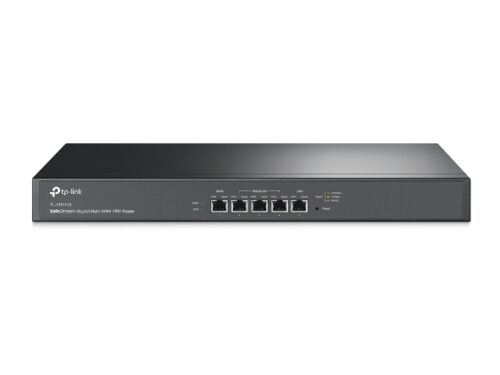What is Business Router
Business Router is a network device that forwards traffic to the Internet or between local area networks (LANs). Business routers offer more control over security and other network settings than the wireless router designed for the home or small office
Business Router Features
Single or dual band business Wi-Fi routers
In wireless communications there are two main frequencies, 2.4GHZ and 5GHz, with dual band routers able to pick up both frequencies. A basic single band router may suffer from interference and the bandwidth signal may become congested, as it will only provide 3 non-overlapping channels. Overall, a dual band business Wi-Fi router will offer higher speeds and improved performance thanks to the availability of 23 non-overlapping channels.
Guest Wi-Fi access
Some business Wi-Fi routers will offer wireless guest access, which allows you to make your internet connection available using a separate wireless network name (SSID). This connection is virtually separated from your main business Wi-Fi network and different security settings are applied. This means it is possible to provide visitors, the public and contractors with access to the internet, while keeping your own Wi-Fi network secure.
Separate networks (VLANS)
Most business routers offer the ability to create multiple virtual networks, which are commonly referred to as VLANs. These virtual networks are designed to separate traffic on your Wi-Fi network, which can be very useful for businesses with multiple departments. For example, it is possible to create a separate VLAN for the management team designed to hold sensitive information.
Security features
Business routers often include additional security features, which are grouped together as UTM gateways or Unified Threat Management Gateways. These gateways can scan for viruses, protect against spam and filter content to protect your business from threats and dangerous content. Many business Wi-Fi routers also have built-in integrated firewalls, which support security keys such as WEP, WPA and WPA2, for an extra level of network security.
USB ports
There are some business Wi-Fi routers which include a USB port, which will allow you to share connections to USB printers or external drives with those connected to the network. This can be a useful feature if your current hardware is not network ready and is often a cheaper alternative than replacing expensive hardware.
Gigabit Ethernet connections
Standard business routers are capable of offering maximum speeds of 100Mbps; however, some business Wi-Fi routers are capable of offering significantly faster speeds of 1Gbps. In addition, if there is an issue with the connection, these routers are more likely to failover to an alternative connection which will reduce business downtime.
4G Support
A business Wi-Fi router with two WAN ports or direct 4G support can be great if your business relies heavily on a reliable internet connection. It will be possible to connect two lines from separate providers or plug in a 4G adapter, which will ensure there is always a backup connection available. It may even be possible to increase the bandwidth through load balancing by using both connections simultaneously.
Comprehensive VPN support
Business routers allow you to configure VPNs under more protocols, and the hardware supports a greater number of simultaneous users accessing the VPN. Most entry-level business routers support 10-15 VPN tunnels under each protocol.








